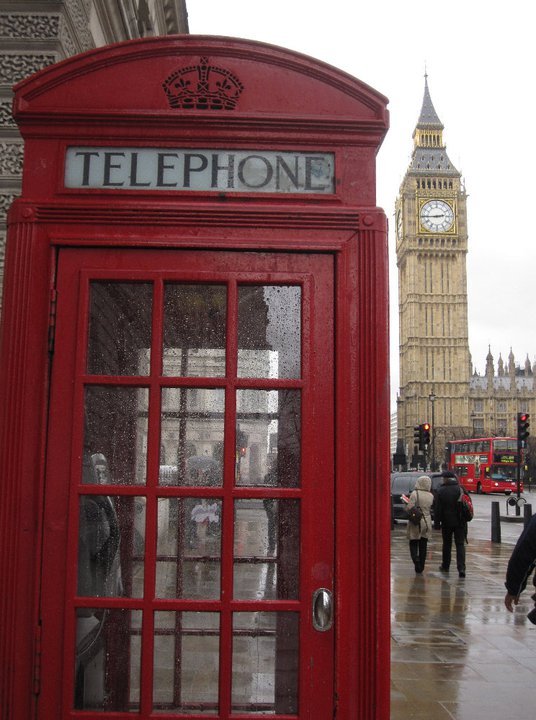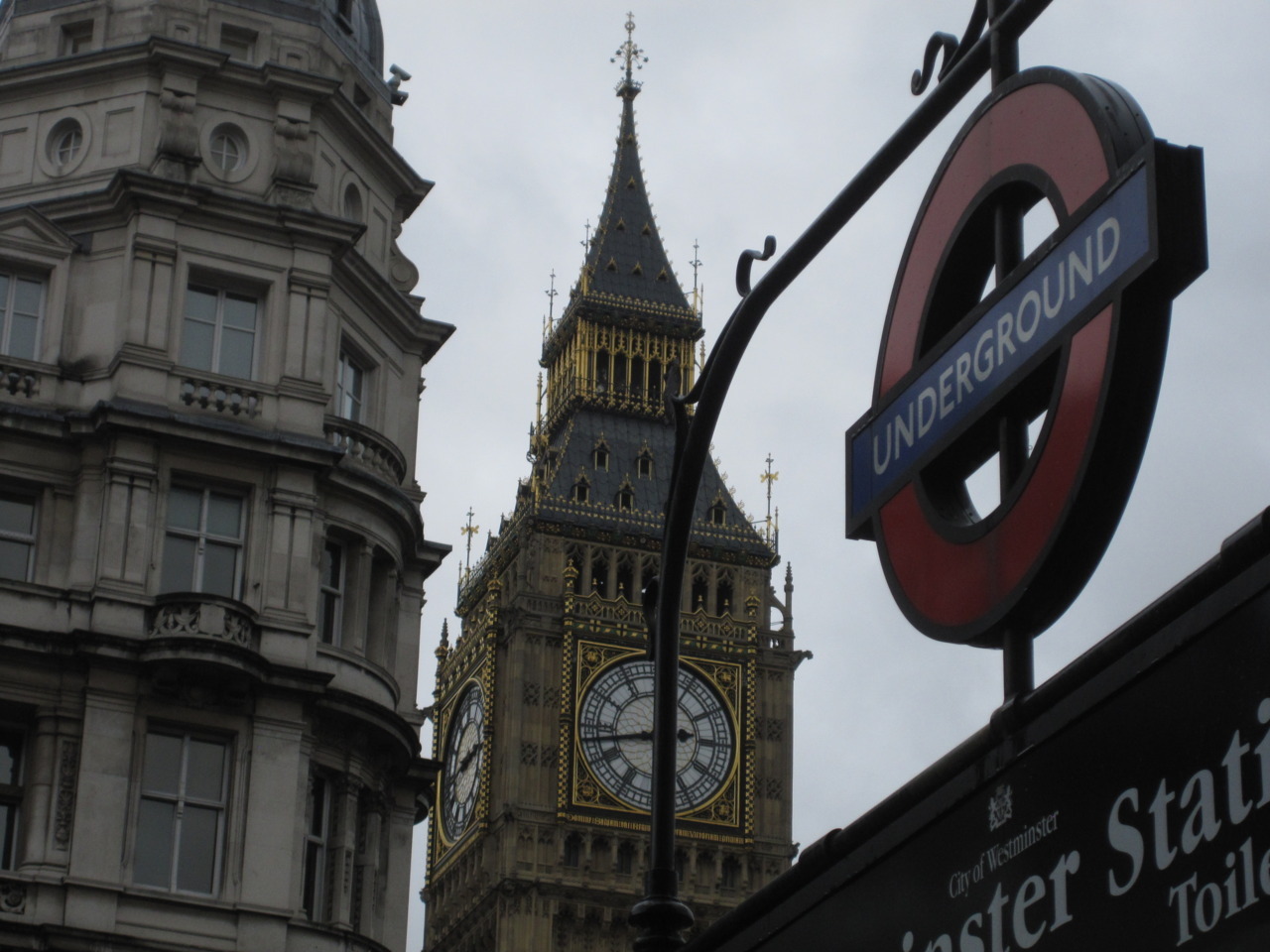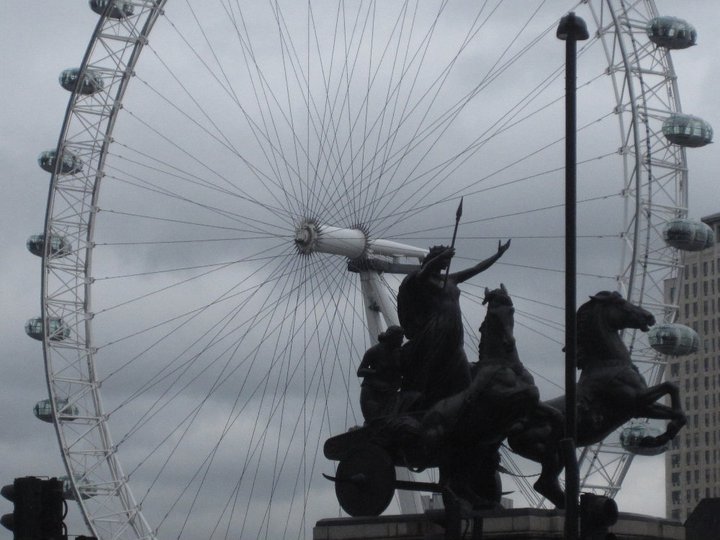 "Here at long last one was in a position not to give a damn for all
conventions, here was a new kind of freedom which until then one had
only found in dreams!" - Karen Blixen,
"Here at long last one was in a position not to give a damn for all
conventions, here was a new kind of freedom which until then one had
only found in dreams!" - Karen Blixen, Out of Africa, 1937
I've been to London three times, technically. (Heathrow is another matter entirely.) I was introduced to the city when I spent a mere half day seeing the basic sites for the first time in my life. I skipped French class that day and headed up there before the arrival of my friends, who were meeting me so we could spend spring break in Scotland and Ireland. We took an overnight bus to Edinburgh that night. In those brief hours, I thought I loved London.
The next trip lasted a week, which was adequate time to get to know the city a bit. I was taking a post-graduate course on the political economy of the European Union, a six week course that went through six capital cities in Europe, so it wasn't all play. It was in many ways a better experience than a vacation, because we got to work with Londoners, including a member of the House of Lords, Dr. William Wallace from the London School of Economics (I remember his name because of the movie Braveheart), a representative of the UK to the EU, a banker or two, and other prominent members of the politico-economic class of the UK. That's when I went to Greenwich and stood on the Prime Meridian, from where we get all measured time on the planet, and it's also when I bought a pair of Doc Martins from the main store that I wore until they fell apart a decade later. (I have blocked the act of throwing them away from my mind; it was a painful experience.) Us students were such academic dorks during that trip that we were excited when we passed by the Financial Times building on a cruise of the Thames. I have a photo of it that I'll dig out when I begin to publish my journal from that time in Europe under the label "If we had blogs in 1999..."
The third time I went to London was nearly as brief as the first; my flight from Beirut to Washington via Heathrow had been changed, leaving me with a 19 hour layover. Spending ten minutes in Heathrow is a nightmare, let alone 19 hours, so for the first time in my life, I left an airport during a layover and spent the day in London.

It had been eleven years since I had set foot in the city. My trips to Europe in that decade plus had consisted of nearly two months in Bulgaria, three weeks in Budapest, five days in Istanbul, a day in Bucharest (all in 2007), four days in Cyprus (2010), and a week in Paris (2010), as well as the three months I spent in Ireland (and three days in Warrington, England) way back in 2000. I had been working in the Middle East field during that time and had seen Europe plenty of times from an airplane window as I headed to Egypt, Lebanon, and Jordan, but it wasn't until 2010 when I was in a decent enough financial situation where I could take vacations to Europe instead of flying over it for work.
But this trip to London was neither for work nor for pleasure. I had taken a chance when Safadi Foundation folded in October 2010 and I was left jobless, going to Beirut on my own to continue the work I had started there, but after five months I was unsuccessful in earning a living and had to come home, as my visa was about to expire and I could not justify getting another to the authorities. The war in Syria was about to erupt, anyway, and soon people I knew would be leaving for safer pastures. That day in London was melancholic. I was returning to Washington with no place to live and no job and there I was in London, a rainy, rainy London, walking around and trying to pretend that everything was ok. The day was March 31, 2011.
 |
| Queen Boadicea trying to get home before the storm |
The rain didn't deter me from walking miles that day with my carry-on luggage weighing me down. I had just spent five months in Beirut; I had one large suitcase in the airport and what wouldn't fit in there was on my back. All I did that day was wander. I had seen all of these things before but it had been over a decade and besides, it was London and it felt more like I was in a movie than in real life.
I don't dream of London. It rains too much and maybe it's too much like American cities for my travel tastes. Most of all, though, is that something about that day sticks with me - that melancholy has never truly left. It wasn't that the next few months were unhappy times; indeed, it was something of the opposite, as I went to Colorado several times to visit The Cosmonaut, who had also left Beirut to return to real life, and I spent some time in Ohio writing and reading and in four months was back in Washington with a new job that I thought at the time was ideal.
It wasn't, though. It wasn't for one reason, and that was that the woman who ran the organization was crazy. I once led a mutiny of our entire staff - I was the first to go to HR about her and the other three members of our team (the entirety of the organization) - followed suit and soon she was sent to sensitivity training and management training. Of course, I was to blame in her eyes, and the situation continued to deteriorate until I quit after only seven months. Four months later I thought I had found another ideal job at a progressive political research organization, but after a year it has amounted to nothing more than an admin job posting things from staff online because the powers-that-be are terrified of our brave new digital world and don't trust a political outsider with the publicity reigns. I don't even get to write. The firm has wasted my talent and my time.
What prompted this post and this reflection was watching Out of Africa for the first time yesterday. Good lord, could I identify with that movie. (Why have I never read the book?) It wasn't just that it was a travel memoir that connected me to it. It was about the end of a chapter of life, an end to a prolonged period of happiness, a time irrecoverable yet longed for all the same. It was freedom.
Karen's coffee crop failed and she had to leave Africa. She went on to become a highly successful and respected writer, but she never returned to the land where that chapter of her life had been written. There's something inherently sad about that.
I have yet to recover from my happy time in Beirut. I'm still searching for a job that provides contentment. Until I, too, can become a successful writer, I want to work for an organization that appreciates my creativity, my writing skills, my fearlessness and honesty and loyalty, and I want to be trusted when I want to do things differently than conventional wisdom. I want to be surrounded by people who don't care that there's no masters degree on my resume, who recognize that being well-read and well-informed doesn't come from a piece of paper but from intellectual curiosity and life experience. I want to work for someone who appreciates getting the work done, not the hours you sit in an office. I want freedom from the conventions, the rules, the social norms that Karen Blixen had in Africa, that I had in Beirut. I want life to be as romantic as it was when I could take a stroll down the coast of the Mediterranean, when my balcony was my office, when work was meetings in cafes with friends who wanted their country to overcome its injustices. I want that peace of mind. It ended before I was ready.
That is what that day in London represents for me, that melancholy, that longing to rewind the clock and do it all again. I'm ready to start a new chapter, to scratch out the drafts of the last two years and to find the contentment I had in Beirut. It doesn't have to be in Beirut. It can be in Bari, Italy or Paris or Istanbul or Brussels or even Washington. Is it asking too much? Do we only get one of these chapters of happiness in our lives? I don't believe that, but until I go back to London under different circumstances, I won't dream of London.
"When in the end, the day came on which I was going away, I learned the strange learning that things can happen which we ourselves cannot possibly imagine, either beforehand, or at the time when they are taking place, or afterwards when we look back on them." – Karen Blixen, Out of Africa, 1937

No comments:
Post a Comment